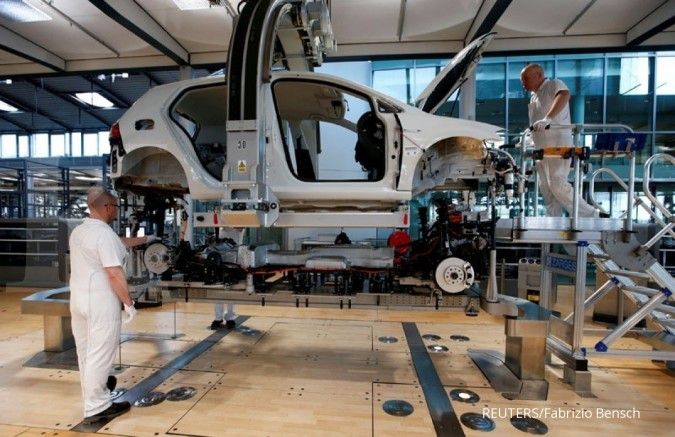EUROPEAN UNION - BRUSSELS - The eurozone economy contracted marginally quarter-on-quarter in the third quarter, a new estimate confirmed on Tuesday underlining expectations of a technical recession if the fourth quarter turns out equally weak, but employment still rose.
The European Union's statistics office Eurostat confirmed its estimate from Oct 31 that gross domestic product in the 20 countries sharing the euro fell 0.1% quarter-on-quarter in the July-September period for a 0.1% year-on-year rise.
European Central Bank vice president Luis de Guindos said last week the eurozone economy was likely to contract slightly or at best stagnate in the fourth quarter after business activity data for October showed a further weakening of demand in the dominant services industry.
Read Also: Euro Zone Factory Activity Stuck in Steep Downturn in Sept - PMI
But contrary to the usual trend when the economy weakens, employment in the eurozone rose 0.3% quarter-on-quarter in the same period, for a 1.4% year-on-year increase.
Eurostat data showed 0.1% quarterly economic growth in France, 0.3% in Spain, and 0.5% in Belgium, but that failed to offset a 0.1% quarterly slump in Germany, no growth in Italy, and contractions in Austria, Portugal, Ireland, Estonia and Lithuania.
The growth slump is caused by strong headwinds from high inflation and record high interest rates as well as the slowly tightening fiscal policy.
As inflation dropped sharply in October, the ECB left interest rates unchanged at its meeting on Oct. 26, ending an unprecedented streak of 10 consecutive rate hikes.
De Guindos said that given the current high uncertainty, the institution would continue to follow a data-dependent approach regarding its future monetary policy.
/2016/03/11/843852402.jpg)










